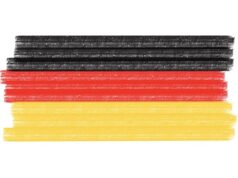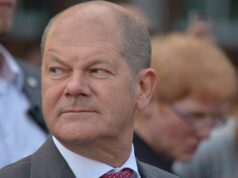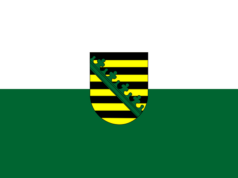During the Christmas season shows how alive old traditions are. They bring variety into everyday life and make people closer together.
When it gets dark shortly after four o’clock, there is only one light and warm place outside: the mulled wine stall at the Christmas market. The stroll through one of the 15 Christmas markets is part of the annual ritual before the festival for many Hamburgers. The scent of cinnamon and anise, the blazing flames of the salmon smokehouse and the many lights inspire the senses. And when „White Christmas“ by Bing Crosby sounds from the loudspeakers, there is no turning back: „It’s Christmas time!“, Wrote Theodor Storm.
With Christmas markets, shopping tours, fairy lights and biscuit baking, the Christmas season starts all over the country. No other month of the year is as strongly influenced by rituals and customs as December is the winter solstice. Especially families now take care of their very individual customs from grandmother’s time. Cookies and stollen are baked, old songs are sung and candles are lit on the Advent wreath. Until finally the highlight on Christmas Eve follows – the mess under the Christmas tree.
Especially at Christmas shows how alive these old traditions and customs are in a modern society. „The Christmas ritual,“ says Christoph Wulf, educationalist and anthropologist at the Free University of Berlin, „has great social dynamics, no matter how someone interprets Christmas. One can not escape this power. „A representative survey conducted by GfK Marktforschung Nürnberg on behalf of the magazine“ Apotheken-Rundschau „has now revealed: for 73 percent of Germans aged 14 and over, customs and rituals are part of Advent and Christmas. Rituals structure time, create transitions, provide security and make the festival really beautiful. It is the power of collective habit that feeds the continuity of Christmas every year. In ritual, man can forget everyday life. „It celebrates the dream of eternal duration,“ says sociologist Tilman Allert.
When the Feast of the Nativity of Jesus in the fourth century was first celebrated as the ecclesiastical response to the pagan cult of the sun, it quickly developed its own dynamic. It quickly found its place in customs and church year and was officially declared a holiday in the eighth century. In order to celebrate this day, the Catholic Church prescribed a Lent before and fixed the further timetable: For example, with the day of remembrance for Saint Barbara, on which still today on December 4 cherry branches are cut and placed in vases. So they bloom on time on the 24th of December. Or St. Nicholas Day on the 6th of December, which was the actual day for the mess until Martin Luther’s Reformation in the 16th century.
With such rituals, people make the transition into the dark winter months until today. What’s more, they are celebrating Christmas as a big family party. Since the emergence of the bourgeois family in the 19th century, it has been them who discovered the myth of the Holy Family for themselves. As a result, Christmas is the most important family celebration of the year for the majority of Germans. According to an Allensbach survey, 78 percent of West Germans and 85 percent of East Germans celebrate Christmas primarily as a family celebration, but only 56 or 30 percent in West and East as Jesus‘ birthday.
„Without these festivals and rituals,“ says folklorist Professor Friedemann Eugen Schmoll, „life would only be monotonous, gray everyday life. Festivals and rituals interrupt this steady flow of time. „Anyone celebrating a festival, as philosopher Josef Pieper put it, says“ yes „to life. And at Christmas also „yes“ to the family. Even if it is difficult sometimes.
In the local Christmas bakeries, a cosmos of culinary delights is being created these days. Especially the elders are committed to passing the custom on to the younger ones. Cookies, gingerbread, marzipan, Aachener Printen and Stollen are probably the most common creations that enrich the gift table since the late Middle Ages. Opulent eating and drinking are at the heart of Christmas, the „Consecrated Nights“. For the poor people of earlier eras, December 24th and 25th were often the only days of the year when they could eat their fill and have a full belly. Even today, Christmas Eve in Schleswig-Holstein is therefore called „Vollbuuksabend“.
Also at Hamburg schools, customs such as Christmas baking are alive. For example, the first week of Advent at Rahlstedt Grammar School began with the raffle of Advent gifts and singing together. Just as the heavenly hosts once rejoiced after the birth of Jesus, today the disciples enter into the joyful choir.
„The students, even the cool ones, find these rituals beautiful,“ says Headmaster Volker Wolter. The high school students had great fun with Julklapp and Christmas dinner (there was roast turkey), at the Christmas ball last Friday and at Christmas baking. Wolter is grateful that such customs exist. As ritualized actions, they create structures in the monotony of school learning. „A school needs rituals – for the entrance as in enrollment, for the outcome as in the graduation ceremonies and for the rhythm of the year.“ Christmas, he adds, has a special meaning. Also for those students who have nothing to do with Christianity.
How strong the power of the traditions is, shows the return of the so-called children’s bishops. Once upon a time, after the time of the Reformation, there was the custom in Hamburg that children’s bishops could tell their opinion to senators shortly before Christmas. The students had great political influence. Until that became too colorful for the senators. Only a few years ago, Hamburg rediscovered this custom and re-established the office of the Children’s Bishops. Also this year there are students of the Wichern school. They are from the fifth grade, called Sophie, Tim and Marek and are now bishops. Last week, the three were even received by Social Senator Detlef Scheele (SPD), because the political claim has remained. „We find that the right to health of children in Hamburg is not always respected,“ said the children in a small speech. „It’s important that children eat well so they stay healthy.“
As Wichern school pastor Katharina Gralla says, the three selected students have an important assignment. „They represent the interests of children in Hamburg.“ Their inauguration is a great ritual in which they receive a certificate, robes and the episcopal insignia miter, coat, shepherd’s staff, ring and cross. The children, she emphasizes, enjoy a new status afterwards. „They are seen by their peers with different eyes.“ As bishops on time, because on Epiphany on January 6, her term ends traditionally.
Until then, the festival is still really on tour. The many preparations in the families serve only the goal of staging Christmas Eve in the private Christmas rooms in an atmospheric and aesthetic way. The living room, decorated with a Christmas tree, provides the stage for the eternally same rituals. Fondue. Potato salad. Lobster. Optionally, of course. One third of Hamburg church members visited before the big feast nor a church to prelude the family celebration with the blessing of the crib child. Tuned to the song „Silent Night“, the lights on the tree at home are kindled shortly thereafter. It is followed by an astonished „Oh, how beautiful“. Or an annoying „There used to be more tinsel“.
The greeting in the circle of loved ones is considered the highlight of all Christmas rituals. And as a test of the status of a social relationship. Who has less than last year on the gift table, may have dropped in the reputation of other family members. In any case, with large give and take, family contacts are stabilized. „Rituals,“ says Professor Schmoll, „above all, create social togetherness, festive communities are always synonymous social communities. They integrate and connect. And, of course, also rule out. “
By the way, some families like to let the TV run because they have another Christmas ritual there. It is the Christmas speech of the Federal President, since the 1960s firm stock of the collective staging. Federal President Pastor Joachim Gauck will be speaking again this year after his predecessor Christian Wulff had invited dozens of volunteers to record his address at Schloss Bellevue in 2010. What was really new at the time. In front of the glowing tree, Gauck should again call on the Germans to help each other and to strengthen their families. He preaches support morality. The social cement that he calls is supposed to hold. At least until the next Christmas.



